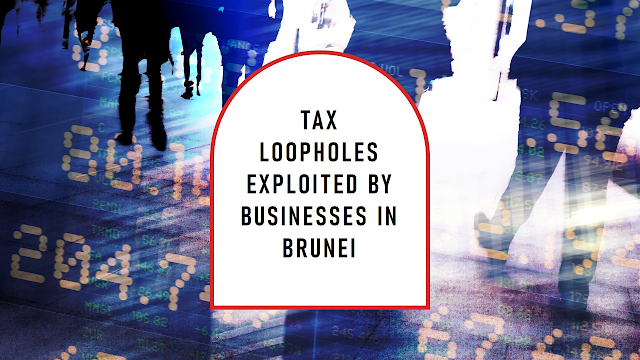Brunei Darussalam – Unemployment among Brunei’s youth, especially recent graduates, is spiralling into a national crisis. Amid rising frustrations, questions loom over the effectiveness of the government's initiatives to tackle this issue.
A striking 5.30% unemployment rate in 2023, up from the previous year, highlights a significant problem.
Forecasts for 2024 predict only a slight improvement, but with an estimated 11,250 people still without jobs, this modest change does little to quell concerns.
Frustrated Graduates Speak Out
"I thought a degree would unlock doors, but it feels like I'm stuck outside, looking in."
This cry of frustration, shared in a recent online forum by a master’s degree holder, has resonated deeply with other unemployed graduates.
Years of education, hard work, and sacrifices have not yielded the career opportunities they were promised.
The online commentary has sparked a larger debate about the adequacy of Brunei’s labour market policies.
Despite the well-intentioned government initiatives, graduates ask, “Where are the jobs?”
Manpower Blueprint: Bold Promises, but What’s Missing?
In 2023, Brunei introduced the Manpower Blueprint, a document brimming with ambitious goals to align education and workforce development with the needs of the evolving economy.
But while it lays out a clear vision, the real-world results appear to be missing.
Three years after His Majesty Sultan Haji Hassanal Bolkiah's call for a strategic workforce plan, the country is still grappling with rising unemployment rates, especially among those who have invested heavily in their education.
The blueprint’s objectives, such as creating a future-ready workforce and fostering public-private partnerships, look promising on paper. But have they led to any substantial changes on the ground?
The Graduate Dilemma: Mismatch Between Aspirations and Reality
A study by Universiti Brunei Darussalam (UBD) in 2020 exposed a harsh truth: a mismatch between what young Bruneians want and what employers need.
Graduates tend to aspire to high-paying government jobs, a preference shaped by a cultural “safety net” mentality.
Meanwhile, industries like construction and agriculture struggle to attract local talent.
Adding to this, employers complain that fresh graduates lack critical problem-solving and leadership skills, often demanding work experience these job seekers do not yet have.
How, then, can young graduates break into an already shrinking job market?
Are Government Programs Doing Enough?
The government has rolled out programs like i-Ready and the Industry Competency Framework (ICF) to tackle unemployment, offering apprenticeships and aligning education with market needs.
However, critics argue these programs fall short of addressing the scale of the problem.
Why is it, despite these initiatives, that Brunei’s youth are still struggling to find jobs?
The question remains: are these programs providing real solutions, or are they just patchwork fixes for a much larger issue?
Cultural Challenges: The Oil Dependency Dilemma
Brunei’s reliance on oil revenue has fostered a “rentier mentality,” where government jobs are seen as the safest bet.
This deep-seated preference for public sector roles stifles private sector growth and discourages entrepreneurship.
While the Manpower Blueprint acknowledges the need for a cultural shift toward risk-taking and innovation, are there enough efforts to change this mindset?
The reliance on foreign labour for manual jobs, while local graduates remain unemployed, highlights an ironic twist. The blueprint may call for a dynamic workforce, but without a shift in attitude and policy execution, Brunei risks failing to equip its youth for the future.
Vision 2035: Can It Be Achieved?
Brunei’s Vision 2035 aims for a highly educated and skilled workforce driving a diversified economy.
Yet, as the clock ticks closer, the gap between policy and reality is widening. The Manpower Blueprint remains a guide, but unless its strategies translate into real-world impact, the unemployment crisis will continue to cast doubt over the nation’s ability to meet its targets.
What Needs to Change?
The key to reversing this trend lies in aligning education with labour market demands. Expanding vocational training, increasing internships, and forging stronger ties between educational institutions and industries can help bridge this gap.
Encouraging entrepreneurship and steering the economy away from oil dependency are also critical steps. Without a more diverse economic foundation, Brunei’s workforce risks being unprepared for the challenges of the future.
Conclusion: A Crossroad for Brunei’s Workforce
Brunei stands at a critical juncture. The unemployment crisis among its graduates is not just a statistic—it’s a call to action.
While the Manpower Blueprint offers a roadmap, there’s an urgent need to fast-track its implementation.
The nation must address its cultural reliance on government jobs, foster a spirit of innovation, and ensure that its workforce is adaptable and future-ready.
Otherwise, the rising frustration among Brunei’s youth may become an even bigger obstacle to achieving Vision 2035.
Will Brunei’s leaders step up to the challenge, or will the blueprint remain just another plan that never quite materialized? (MHO/09/2024)


.jpeg)




